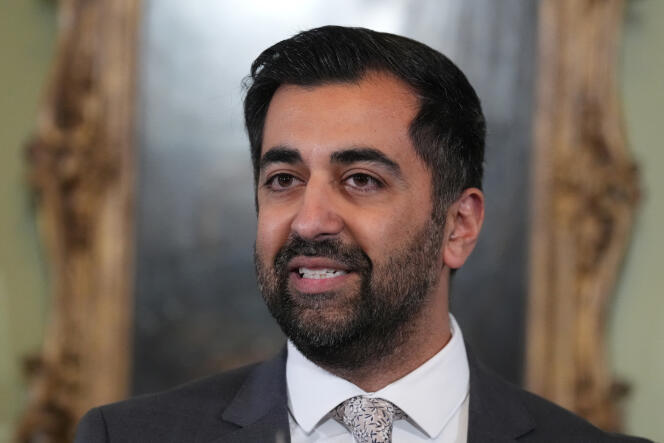In a move that has sent shockwaves through Scottish politics, Humza Yousaf, the leader of the Scottish National Party (SNP), resigned from his position on Monday. His departure has not only left a leadership vacuum within the SNP but has also reignited speculation about the future political landscape of Scotland.
Yousaf’s resignation comes in the wake of a tumultuous week, during which he scrapped a coalition agreement with Scotland’s Greens, sparking a chain of events that ultimately led to his downfall. Despite attempts to garner support and weather votes of no confidence, Yousaf found himself unable to maintain his position at the helm of Scotland’s devolved government.
Taking over the reins from Nicola Sturgeon just over a year ago, Yousaf’s tenure as first minister and SNP leader has been marked by challenges and controversies. The party’s reputation has been tarnished by a funding scandal, coupled with Sturgeon’s resignation as party leader last year. Moreover, internal divisions have emerged regarding the SNP’s stance on key issues, particularly concerning its progressive agenda and economic priorities.
Caught between the imperative to uphold the achievements of the coalition government and the demands of certain factions within the nationalist movement, Yousaf struggled to navigate a path that would satisfy all sides. The result has been a loss of popular support for the SNP, a party that has held sway in Scottish politics for the past 17 years.
The repercussions of Yousaf’s resignation extend beyond the borders of Scotland, with implications for the broader UK political landscape. The resurgence of the Labour Party in Scotland, as evidenced by recent polling data, poses a formidable challenge to the dominance of the SNP. This shift in fortunes for Labour adds to the woes of the Conservative Party, which finds itself trailing behind its rival in nationwide opinion polls.
As Scotland faces the prospect of a leadership vacuum, attention now turns to the selection of Yousaf’s successor. Former SNP leader John Swinney and Yousaf’s erstwhile leadership rival Kate Forbes have emerged as potential contenders for the top job. However, with the Scottish parliament having a mere 28 days to elect a new first minister before triggering an election, the stakes are high for the SNP.
Should the SNP fail to rally behind a new leader, Scotland will be thrust into the midst of a fresh electoral contest, further complicating an already volatile political landscape. The coming weeks will undoubtedly prove decisive in shaping the future trajectory of Scottish politics and determining the nation’s place within the broader UK framework.
In the wake of Yousaf’s resignation, Scotland finds itself at a crossroads, with the path forward fraught with uncertainty and possibility. As political actors jostle for position and parties vie for dominance, one thing remains clear: the winds of change are blowing, and Scotland stands on the brink of a new era in its political journey.


